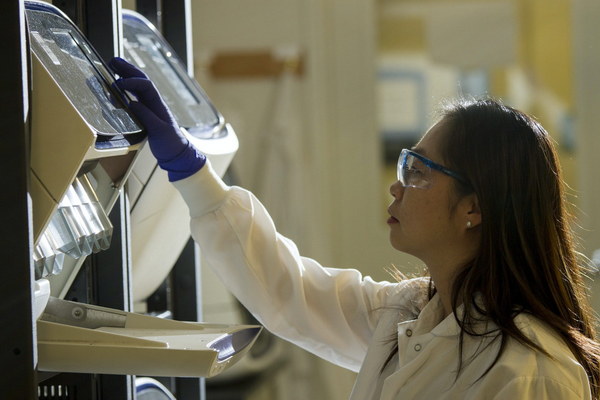Nutritional Therapy for Breast Cancer A Comprehensive Guide to Healthy Eating
Breast cancer is one of the most prevalent types of cancer among women worldwide. While medical treatments are crucial in the fight against this disease, nutritional therapy plays an equally significant role in enhancing the body's ability to heal and cope with the side effects of treatment. This article provides a comprehensive guide to healthy eating for breast cancer patients, focusing on essential nutrients, dietary considerations, and practical tips.
1. Importance of Nutrition in Breast Cancer Treatment
Good nutrition is vital for breast cancer patients as it supports the body's immune system, helps to maintain strength, and enhances the effectiveness of treatments. A well-balanced diet can also alleviate some of the side effects associated with cancer therapy, such as fatigue, nausea, and weight loss.
2. Essential Nutrients for Breast Cancer Patients
a. Protein: Adequate protein intake is crucial for tissue repair and the production of antibodies. Good sources of protein include lean meats, fish, poultry, eggs, dairy products, legumes, and nuts.
b. Carbohydrates: Carbohydrates provide energy and are essential for the body's immune system. Choose complex carbohydrates like whole grains, legumes, and vegetables instead of refined sugars and white flour products.
c. Fats: Healthy fats, such as monounsaturated and polyunsaturated fats, are important for hormone balance, cell membrane function, and the absorption of fat-soluble vitamins. Sources of healthy fats include avocados, nuts, seeds, and olive oil.
d. Vitamins and Minerals: A variety of vitamins and minerals are essential for overall health and recovery. Focus on the following:
- Vitamin D: Important for bone health, vitamin D can be obtained from sunlight exposure, fortified foods, and supplements.
- Calcium: Essential for bone health, calcium can be found in dairy products, leafy greens, and fortified foods.

- Iron: Iron is crucial for the production of red blood cells and can be obtained from red meat, poultry, fish, legumes, and fortified cereals.
- Selenium: Selenium has antioxidant properties and can be found in nuts, seeds, and whole grains.
e. Fiber: High-fiber diets help maintain regular bowel movements and reduce the risk of constipation, a common side effect of cancer treatment. Good sources of fiber include fruits, vegetables, whole grains, and legumes.
3. Dietary Considerations for Breast Cancer Patients
a. Hydration: Adequate fluid intake is essential for maintaining hydration, which can help alleviate nausea and constipation. Aim for at least 8 cups of water per day, and consider herbal teas and clear broths as additional sources of fluids.
b. Food Preparation: Breast cancer patients may experience changes in taste and smell, making it difficult to enjoy certain foods. Experiment with different cooking methods, seasonings, and food textures to find what works best. Additionally, consider using kitchen gadgets like blenders or food processors to make meals more palatable.
c. Portion Control: Some breast cancer patients may experience changes in appetite and weight. Pay attention to portion sizes and adjust accordingly to maintain a healthy weight.
d. Consult a Nutritionist: A registered dietitian or nutritionist can provide personalized dietary advice based on the individual's specific needs, treatment plan, and preferences.
4. Practical Tips for Healthy Eating During Breast Cancer Treatment
a. Plan Meals in Advance: Preparing meals in advance can help save time and reduce stress, particularly during treatment. Consider using meal prep containers or batch-cooking to create meals that can be stored and reheated as needed.
b. Keep Snacks on Hand: Snack on healthy, nutrient-rich foods throughout the day to maintain energy levels and prevent hunger. Examples include yogurt, nuts, fruit, and whole-grain crackers.
c. Explore New Foods: Don't be afraid to try new foods and recipes. This can help keep meals interesting and provide a variety of nutrients.
d. Listen to Your Body: Pay attention to your body's needs and preferences. If certain foods cause discomfort, try alternative options or consult a healthcare professional for advice.
In conclusion, nutritional therapy plays a crucial role in the management of breast cancer. By focusing on essential nutrients, dietary considerations, and practical tips, breast cancer patients can improve their overall health, support their treatment plan, and enhance their quality of life. Always consult with healthcare professionals before making significant changes to your diet.









